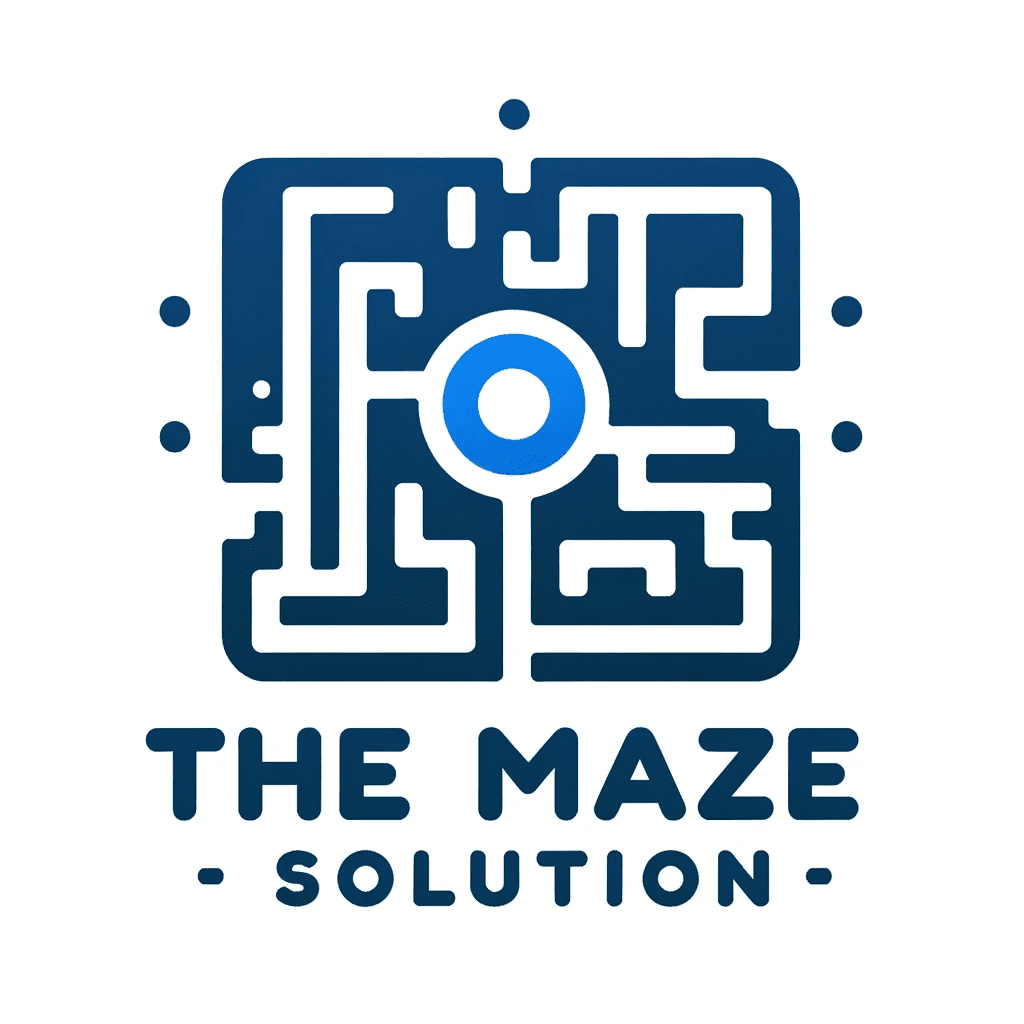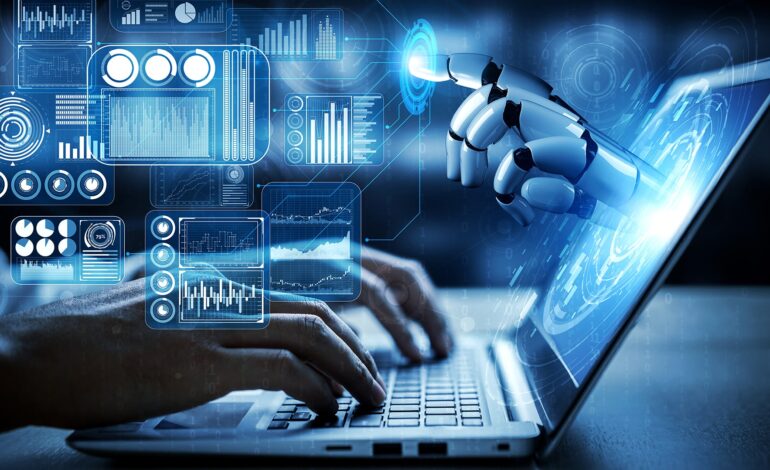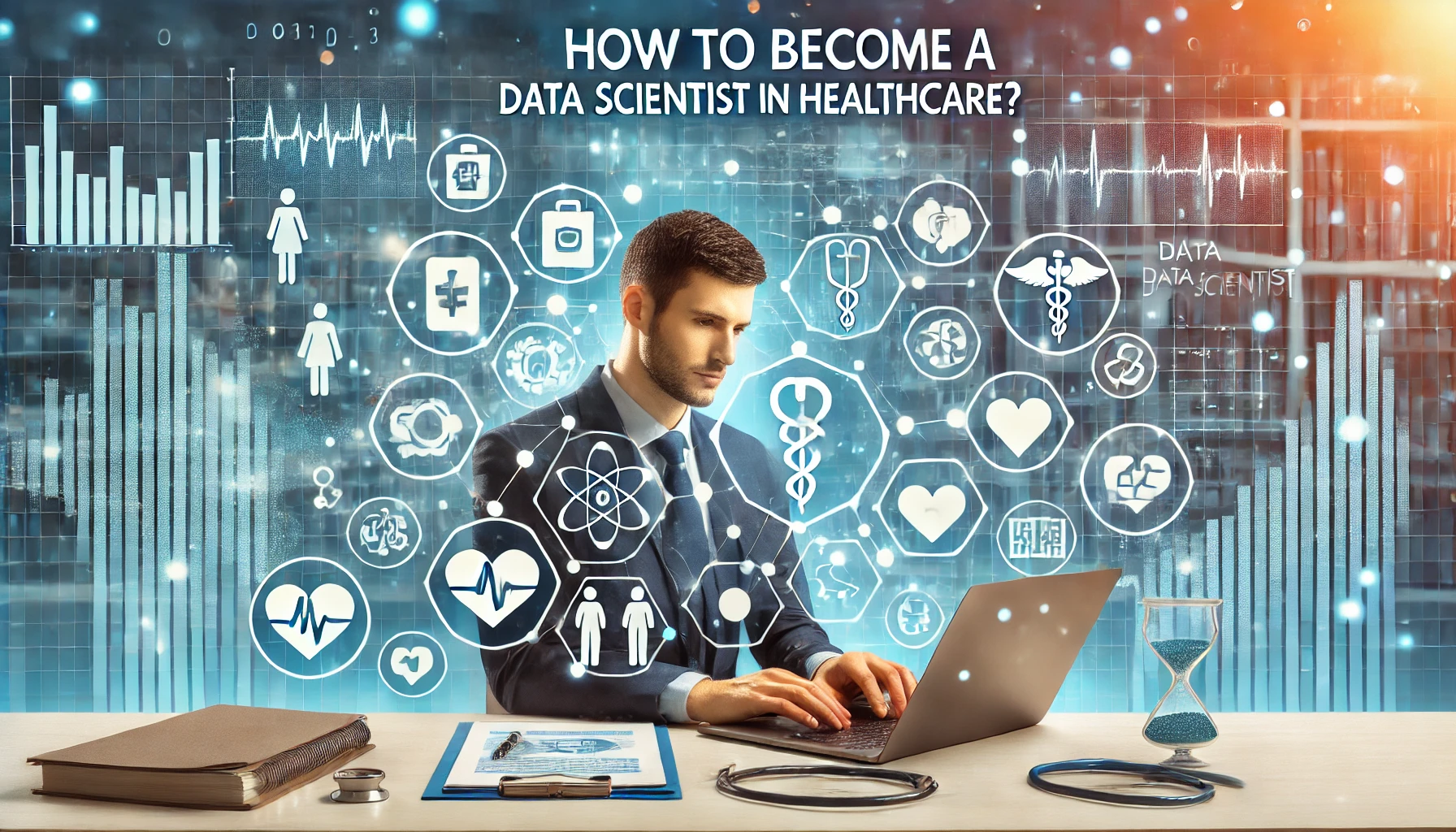Amazing Benefits of Artificial Intelligence in Healthcare
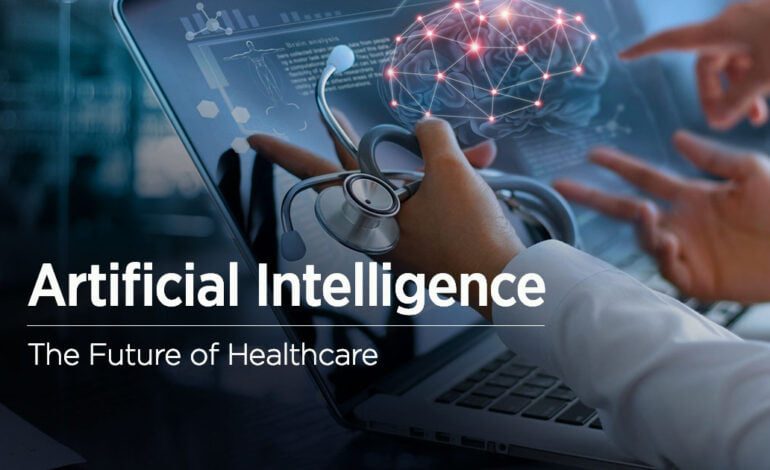
Artificial Intelligence (AI) is revolutionizing healthcare in ways previously thought impossible. For instance, a study published in Nature Medicine found that an Artificial Intelligence system developed by Google was able to detect breast cancer in mammograms with greater accuracy than human radiologists, reducing false positives by 5.7% and false negatives by 9.4%. This is just one example of how Artificial Intelligence is transforming the healthcare landscape, offering unprecedented benefits to both patients and providers.
Artificial Intelligence in healthcare encompasses a range of technologies that enable machines to sense, comprehend, act, and learn. These technologies include machine learning, natural language processing, and robotics. Artificial Intelligence applications in healthcare can analyze complex medical data, support clinical decisions, and enhance the overall efficiency of healthcare delivery.
In this blog, we will explore the numerous benefits of Artificial intelligence in healthcare, focusing on improved diagnostics, personalized treatment plans, operational efficiency, enhanced patient care, accelerated medical research, predictive analytics in population health, and addressing ethical considerations and challenges.
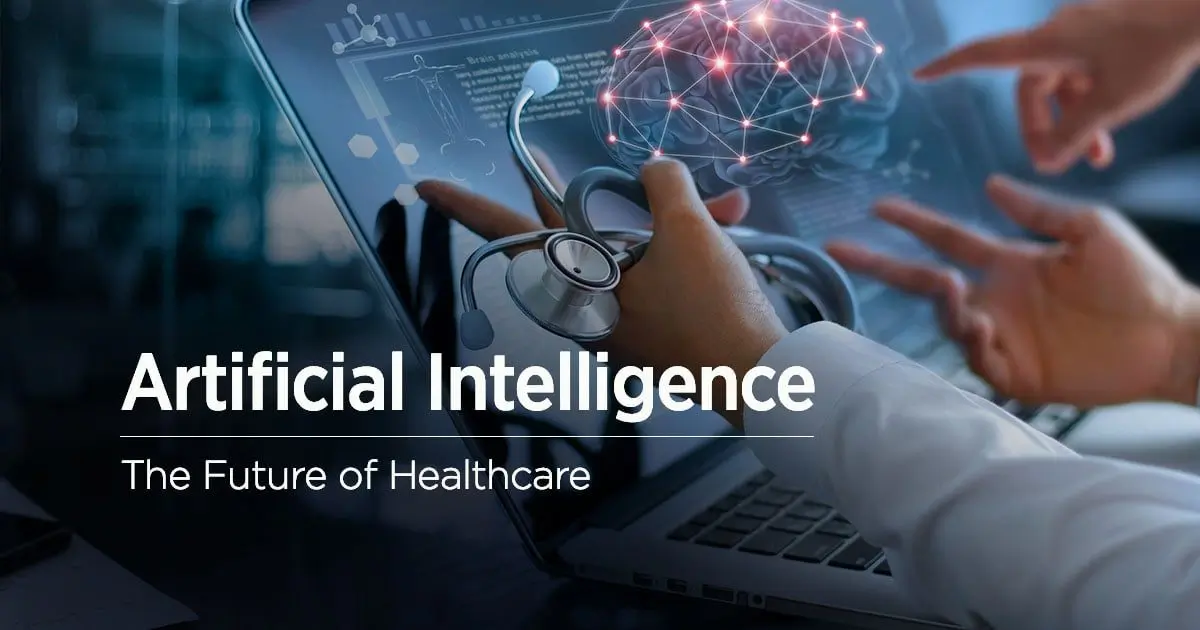
Artificial Intelligence in Healthcare: Improved Diagnostics
Early Detection and Diagnosis
Artificial Intelligence algorithms have the capability to analyze medical images, such as X-rays, MRIs, and CT scans, with incredible precision. These algorithms can identify patterns and anomalies that may be missed by the human eye, leading to earlier detection of diseases. For example, AI has shown remarkable success in detecting conditions like cancer, diabetic retinopathy, and cardiovascular diseases at an early stage, allowing for timely intervention and better patient outcomes.
Precision and Accuracy
AI reduces human error in diagnosis, providing a higher level of accuracy. AI systems, such as IBM Watson Health, use vast amounts of data to cross-reference symptoms, medical histories, and research findings, offering a more precise diagnosis. This precision is crucial in complex cases where multiple conditions might present similar symptoms.
Case Studies/Examples
Google DeepMind’s Artificial Intelligence, for instance, has demonstrated exceptional accuracy in diagnosing eye diseases from retinal scans. Similarly, IBM Watson Health has been used in oncology to assist in diagnosing cancer and recommending treatment options based on the latest research and patient data.
Artificial Intelligence in Healthcare: Personalized Treatment Plans
Tailored Therapies
Artificial Intelligence can analyze an individual’s genetic makeup, lifestyle, and other factors to develop personalized treatment plans. This customization ensures that patients receive therapies tailored to their unique needs, which can lead to better treatment outcomes.
Predictive Analytics
Artificial Intelligence’s predictive analytics capabilities enable it to forecast how patients will respond to different treatments. By analyzing historical data, AI can predict potential side effects and efficacy, allowing healthcare providers to select the most effective treatment with the fewest adverse effects.
Chronic Disease Management
For chronic diseases like diabetes, heart disease, and asthma, Artificial Intelligence can help in continuous monitoring and management. Artificial Intelligence-powered applications can remind patients to take their medications, suggest lifestyle changes, and alert healthcare providers if a patient’s condition worsens.
3. Operational Efficiency
Operational efficiency in healthcare refers to the ability of healthcare providers to deliver high-quality care in a cost-effective and timely manner. Artificial Intelligence (AI) plays a crucial role in enhancing this efficiency by streamlining various processes, reducing errors, and optimizing resource allocation. Here’s how Artificial Intelligence contributes to operational efficiency in healthcare:
1. Automation of Routine Tasks
AI can automate a wide range of routine administrative tasks, such as scheduling appointments, managing patient records, and processing insurance claims. By automating these tasks, healthcare providers can reduce the administrative burden on staff, allowing them to focus more on patient care. For example, AI-powered chatbots can handle patient inquiries and appointment bookings, freeing up human staff for more complex interactions.
2. Optimized Scheduling and Resource Management
AI algorithms can analyze historical data and current demand to optimize the scheduling of staff, equipment, and facilities. This ensures that resources are used efficiently, reducing wait times for patients and avoiding overbooking or underutilization of medical staff and equipment. For instance, AI can predict peak times for patient visits and adjust staffing levels accordingly, ensuring that the right number of healthcare professionals are available when needed.
3. Enhanced Diagnostic Accuracy
Artificial Intelligence can assist in diagnosing diseases more accurately and quickly by analyzing medical images, lab results, and patient histories. Machine learning algorithms can identify patterns and anomalies that might be missed by human eyes, leading to faster and more accurate diagnoses. This not only improves patient outcomes but also reduces the time and resources spent on unnecessary tests and procedures.
4. Predictive Analytics for Patient Care
Artificial Intelligence can use predictive analytics to foresee potential health issues and intervene early. By analyzing data from electronic health records (EHRs), wearable devices, and other sources, AI can identify patients at risk of developing certain conditions and suggest preventive measures. This proactive approach can reduce the need for emergency interventions and hospital admissions, leading to significant cost savings and better patient outcomes.
5. Streamlined Workflow Processes
AI can streamline various workflow processes within healthcare facilities. For example, AI-powered systems can prioritize and triage patients based on the severity of their conditions, ensuring that those who need urgent care receive it promptly. This helps in managing patient flow efficiently and reduces bottlenecks in the system.
6. Reduction of Human Errors
Human errors in healthcare can lead to serious consequences, including misdiagnosis, incorrect treatment, and medication errors. AI can significantly reduce these errors by providing decision support to healthcare professionals. For instance, AI algorithms can cross-check prescriptions for potential drug interactions and flag any issues before the medication is dispensed.
7. Improved Patient Management
AI can enhance patient management by providing personalized care plans based on individual patient data. AI systems can track patient progress, monitor compliance with treatment plans, and send reminders for medication and follow-up appointments. This ensures that patients adhere to their care plans, improving outcomes and reducing the likelihood of readmissions.
8. Cost Reduction
By improving efficiency and reducing errors, AI can help healthcare providers save costs. Automation of administrative tasks reduces labor costs, while optimized resource management minimizes waste. Additionally, early diagnosis and preventive care can reduce the financial burden associated with advanced-stage treatments and hospital stays.
9. Enhanced Data Management and Analysis
AI can handle and analyze vast amounts of data more efficiently than humans. It can identify trends, generate insights, and provide data-driven recommendations for improving operational processes. For example, AI can analyze patient data to identify patterns that indicate inefficiencies or areas for improvement, enabling healthcare providers to make informed decisions about resource allocation and process optimization.
4. Enhanced Patient Care
Virtual Health Assistants
Artificial Intelligence-driven virtual health assistants provide 24/7 support to patients. These assistants can answer health-related questions, provide medication reminders, and even offer mental health support. This continuous availability improves patient satisfaction and adherence to treatment plans.
Remote Monitoring
Wearable devices equipped with Artificial Intelligence can monitor a patient’s vital signs in real-time. These devices can detect abnormalities and alert healthcare providers immediately, ensuring timely intervention. For example, smartwatches can monitor heart rate, sleep patterns, and physical activity, providing valuable data to healthcare providers.
Patient Engagement
Artificial Intelligence tools enhance patient engagement by providing personalized health tips, educational content, and reminders. Engaged patients are more likely to follow treatment plans and make healthier lifestyle choices, leading to better health outcomes.
5. Accelerating Medical Research
Artificial Intelligence (AI) is revolutionizing the field of medical research, significantly accelerating the pace of discovery and innovation. This transformation is driven by AI’s ability to process vast amounts of data quickly and accurately, enabling researchers to uncover patterns, predict outcomes, and make data-driven decisions with unprecedented speed and precision. Below are some key ways AI is accelerating medical research:
1. Data Analysis and Pattern Recognition
Artificial Intelligence algorithms excel at analyzing large datasets, identifying patterns, and making predictions. In medical research, this capability is crucial as it allows for the rapid analysis of genetic, clinical, and imaging data. AI can sift through millions of data points to find correlations and insights that might take humans years to identify. This accelerates the understanding of disease mechanisms, potential therapeutic targets, and patient responses to treatments.
2. Drug Discovery and Development
The process of discovering and developing new drugs is traditionally time-consuming and expensive. Artificial Intelligence is changing this by automating various stages of the drug discovery process. Machine learning models can predict the efficacy and safety of new compounds, design molecules with desired properties, and even repurpose existing drugs for new therapeutic uses. This not only speeds up the development process but also reduces costs, making it possible to bring new treatments to market faster.
3. Personalized Medicine
Artificial Intelligence enables the creation of personalized treatment plans based on a patient’s unique genetic makeup, lifestyle, and environmental factors. By analyzing large-scale genomic data, Artificial Intelligence can help identify which patients are likely to benefit from specific treatments, thereby improving outcomes and reducing trial-and-error approaches in therapy selection. This personalization speeds up the research process by quickly identifying the most effective treatments for different patient populations.
4. Clinical Trials Optimization
Conducting clinical trials is a critical but often slow phase of medical research. Artificial Intelligence can optimize various aspects of clinical trials, including patient recruitment, monitoring, and data analysis. Artificial Intelligence-driven tools can identify suitable candidates for trials by analyzing electronic health records, ensure better compliance and monitoring through wearable technology, and analyze trial data in real-time to detect trends and issues early. This improves the efficiency and success rates of clinical trials.
5. Predictive Analytics and Disease Modeling
Artificial Intelligence-powered predictive analytics can model the progression of diseases and forecast the potential impact of various interventions. These models help researchers understand how diseases evolve and predict the outcomes of potential treatments. By providing insights into disease dynamics, AI aids in designing more effective studies and developing strategies to prevent or mitigate disease progression.
6. Reducing Time from Research to Application
Traditionally, translating research findings into clinical applications takes years, if not decades. AI shortens this timeline by streamlining the research process. For instance, AI can rapidly process and interpret clinical trial data, enabling quicker regulatory approvals and adoption of new treatments. Additionally, AI tools can assist in the dissemination of research findings through automated writing and data visualization, making complex data more accessible to the scientific community and the public.
7. Enhanced Collaboration and Data Sharing
AI facilitates better collaboration among researchers by enabling seamless data sharing and integration across different platforms and institutions. Advanced AI systems can harmonize diverse datasets, allowing researchers from various disciplines to work together more effectively. This collaborative approach accelerates the generation of new insights and fosters innovation by combining expertise from different fields.
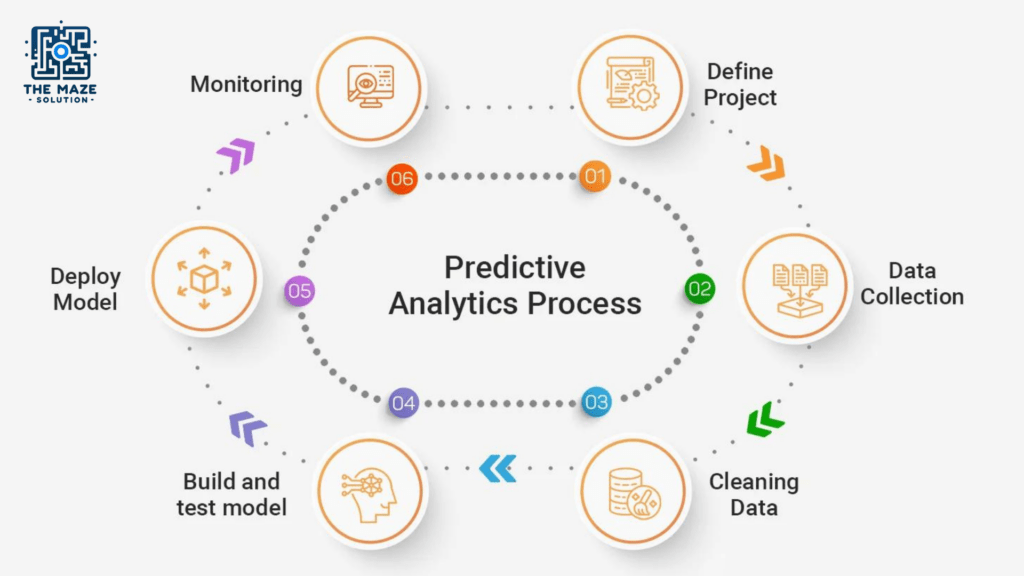
6. Predictive Analytics in Population Health
Epidemiology
Artificial Intelligence is instrumental in predicting and managing disease outbreaks. By analyzing data from various sources, including social media, travel records, and health reports, AI can identify patterns and predict the spread of infectious diseases, enabling timely public health interventions.
Health Trends Analysis
AI’s role in analyzing health trends extends beyond immediate disease management to long-term healthcare planning. By assessing data on current health trends, AI can predict future healthcare needs, enabling providers and policymakers to plan and allocate resources effectively. This strategic foresight ensures that healthcare systems are equipped to meet future demands, such as anticipated increases in chronic disease prevalence or shifts in population demographics. An example includes using AI to model potential impacts of aging populations on healthcare services, facilitating proactive adjustments in care provision.
Public Health Interventions
AI-driven public health initiatives are at the forefront of designing and implementing targeted interventions. By analyzing data to identify communities at high risk for specific diseases, AI suggests tailored preventive measures. These interventions may include vaccination campaigns or health education programs designed to address particular vulnerabilities. For example, AI can pinpoint areas with low vaccination rates and recommend outreach efforts to increase community immunization, directly contributing to disease prevention and health promotion.
In conclusion, Artificial Intelligence is not just a futuristic concept—it’s a practical tool that’s reshaping the landscape of healthcare and public health. By harnessing its potential, we can anticipate health challenges more accurately, optimize resource use, and implement interventions that effectively protect and promote public health. As AI technology continues to advance, its applications in healthcare will undoubtedly expand, offering even greater opportunities to improve health outcomes globally.
7. Ethical Considerations and Challenges
Bias and Fairness
Artificial Intelligence systems can inherit biases present in their training data, leading to unfair treatment of certain populations. Addressing these biases is crucial to ensure that Artificial Intelligence applications in healthcare are fair and equitable. Researchers and developers must carefully select and preprocess data to minimize biases and ensure that AI systems are trained on diverse datasets.
Privacy and Security
The use of Artificial Intelligence in healthcare involves handling sensitive patient data, making privacy and security paramount. Healthcare organizations must implement robust data protection measures and comply with regulations such as the Health Insurance Portability and Accountability Act (HIPAA) to safeguard patient information.
Regulatory and Ethical Standards
The deployment of AI in healthcare requires adherence to regulatory and ethical standards. Regulatory bodies must develop guidelines to ensure that AI applications are safe, effective, and transparent. Ethical considerations, such as informed consent and accountability, must also be addressed to maintain trust in Artificial Intelligence technologies.
AI is transforming healthcare by improving diagnostics, personalizing treatment plans, enhancing operational efficiency, and accelerating medical research. Its predictive analytics capabilities are instrumental in managing population health, while virtual health assistants and remote monitoring technologies enhance patient care.
However, the adoption of artificial intelligence in healthcare also presents challenges, particularly in ensuring fairness, privacy, and compliance with regulatory standards. Addressing these challenges is crucial to fully realize the benefits of AI and ensure that it serves all patients equitably.
As artificial intelligence continues to advance, its potential to revolutionize healthcare grows. Staying informed and engaged with these developments is essential for healthcare professionals, policymakers, and patients alike. Embracing AI’s potential while addressing its challenges will pave the way for a more efficient, effective, and equitable healthcare system.
Pros of AI in Healthcare
- Enhanced diagnostic accuracy helps identify conditions earlier. AI systems analyze advanced data to provide precise results, allowing doctors to catch diseases before they progress.
- AI enables quick access to relevant information for medical professionals. This means they can make informed clinical decisions faster, improving patient outcomes.
- With AI, personalized treatment plans can be created. By considering genetic, clinical, and lifestyle factors, healthcare providers can offer effective, individualized care tailored to each patient.
- AI ensures that management of patient data is seamless and efficient, leading to smoother healthcare processes.
- AI accelerates drug discovery by helping to identify potential drug candidates more efficiently. This reduces the time to market, making new treatments available to patients sooner.
- Enhanced predictive analytics allow healthcare systems to identify trends and predict disease outbreaks. This capability enables early interventions, which can save lives.
- AI improves administrative efficiency by automating tasks like appointment scheduling, billing, and claims processing. This leads to reduced costs and allows staff to focus on patient care.
- Patients benefit from better accessibility to healthcare services, regardless of their location. AI-powered wearables and sensors provide continuous monitoring and support.
- AI applications enhance patient engagement by offering personalized care recommendations and educational content. This empowers patients to take an active role in their health.
- Increased surgical accuracy is achieved through AI-driven robotic systems that assist surgeons during procedures. This enhances precision and helps to reduce the risk of human error.
Cons of AI in Healthcare
- One key issue is data privacy and security. Protecting sensitive patient data is crucial to avoid data breaches that can harm patients.
- The generation of vast amounts of data comes with risks. If not managed properly, this data can lead to privacy violations.
- Bias in training data can result in unequal treatment. This is a serious concern for certain demographic groups who may not receive fair care.
- There is a risk of misdiagnosis or underdiagnosis if healthcare providers rely too much on AI recommendations. This can have serious consequences for patients.
- Emerging regulatory and legal challenges demand navigating complex regulatory frameworks. Healthcare providers must stay updated to comply with these rules.
- Interoperability issues may arise when integrating new AI tools with existing healthcare systems. This can make it hard for different systems to communicate.
- Reliability and accountability concerns need to be addressed. It’s important to identify who is responsible in case of an event or error caused by AI.
- There can be resistance to adoption from both healthcare professionals and the general public. This is often driven by a lack of trust in AI-generated recommendations.
- The high costs associated with AI development and implementation can limit its use in many healthcare settings.
- Overreliance on AI-generated recommendations might reduce critical thinking and judgment among healthcare professionals, which are vital for effective care.
- Ethical concerns can arise from AI-generated decisions that may not align with patient and family preferences. This can create conflicts in patient care.
- Data quality issues, such as incomplete or inaccurate data, can undermine the effectiveness of AI systems and lead to poor outcomes.
- Lastly, there are potential cybersecurity risks. Threats like ransomware and malware can compromise patient data and disrupt healthcare services.
Other use of Artificial Intelligence:
“10 Ways Artificial Intelligence is Revolutionizing Daily Life” This blog is really amazing if you want to get more knowledge about Artificial Intelligence: Click Here : 10 Ways Artificial Intelligence is Revolutionizing Daily Life
“How Artificial Intelligence Will Transform Everyday Tech? ” This blog gives you the knowledge that how Artificial Intelligence transforming us ,Click here to read : How Artificial Intelligence Will Transform Everyday Tech?
What are the advantages and benefits of using AI in healthcare?
The benefit of using AI in healthcare is that it offers many advantages that can improve patient care. For instance, AI can analyze vast amounts of data much faster than humans, making it a good thing for doctors who need to make quick decisions. This difference is especially clear when we compare AI’s ability to detect diseases like cancer earlier than traditional methods. Just like how tall players have an advantage in basketball, AI gives healthcare professionals a better chance to provide effective treatments by using advanced tools that enhance their experience in patient care. Additionally, studying AI systems is essential for students who can benefit from new technologies, just as exercising regularly offers many health benefits. For those who need flexibility, studying online can be advantageous, allowing for better time management compared to traditional school settings.
How can artificial intelligence help healthcare?
AI has the ability to process and analyze vast amounts of medical data far beyond human capacity, making it instrumental in diagnosing diseases and predicting outcomes. For instance, AI algorithms can effectively analyze medical images like X-rays and MRIs with greater accuracy and speed than human radiologists, allowing for the detection of diseases such as cancer in earlier stages. This not only improves patient care but also enhances the overall effectiveness of healthcare practices.
